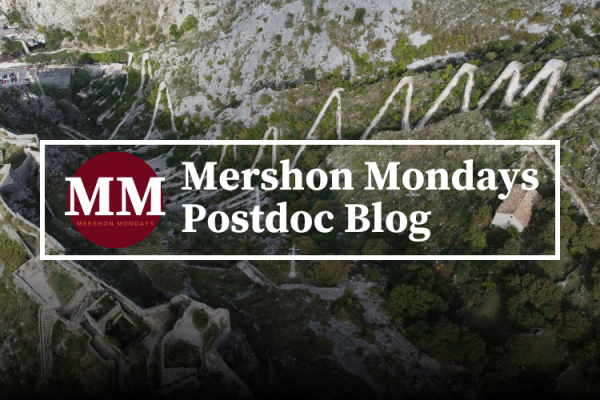Spoils of War: The Repatriation of Children in the Balkan Borderlands

At our Mershon Monday event on November 18th, Professor Theodora Dragostinova (History) shared her new research project focusing on the cases of over a thousand children who became the unintended “spoils” of warfare during the Balkan Wars and World War I. Through in-depth archival work, Professor Dragostinova pieces together fragments of the lives of these young individuals, highlighting the complex ways in which identity and nationality are imagined and contested in the process of child repatriation.
The origins of this project began in the early 2000s during Professor Dragostinova’s research travels across Serbia, Bulgaria, and Greece. In Bulgarian state archives, an archivist showed her a “secret drawer”—a trove of documents involving contested cases of repatriated children between Bulgaria and Greece. Among these were numerous files on the so-called “minor Greeks”, children caught in the tumultuous shifts of national borders and allegiances. Although these materials did not find a place in her first book, the onset of the war in Ukraine in 2022—particularly reports of children allegedly being taken from Ukraine and placed for adoption in Russia—prompted her to recognize important parallels as she returned to the question of what happened to Greek children in Bulgaria after war’s end.
Between 1912 and 1922, conflict led to mass displacements within the Balkans. Families were torn apart as borders shifted unpredictably, and children often found themselves separated from their parents—left in orphanages, taken by occupying troops, or caught in the crossfire of competing national claims. Professor Dragostinova shared photographs of mountain passes where civilian populations fled, underscoring the harsh terrains these individuals navigated, as well as images of children who were repatriated to Greek orphanages.
Professor Dragostinova’s research aims to reconstruct the stories of these individuals through fragmented archival records. She has been working with a database derived from standard forms used during the period to document each child—detailing their age, place of birth, and the circumstances of their separation. By 1922, approximately 800 children were repatriated to Greece, while about 200 remained in Bulgaria due to various exemptions, such as adoptions or marriages. As the archives she consulted demonstrated, the repatriation process was often contested. Commissions were composed of Bulgarian, French, and Greek officials who would interrogate each child to determine their fate—whether they would sent back to Greece or remain in Bulgaria—yet these officials often disagreed with each other. Moreover, Professor Dragostinova found many complicated cases in which individuals had come of age while in Bulgaria, or had married Bulgarians and thus had to balance conflicting attachments to their parents, spouses, and even children.
One methodological challenge Professor Dragostinova discussed was capturing what she termed the “archival whispers”. Bureaucratic documentation in the archives sometimes contains only a sentence or two transcribing the child’s own perspective. These records are not only scarce but also mediated by the political and social biases of the time. The children’s identities were ambiguous, shaped by fluid notions of nationality, language, and religion in a region where borders and allegiances were shifting repeatedly and unexpectedly. Many children were multilingual and could not be easily classified into rigid national categories, complicating the efforts of officials who sought to repatriate them based on constructed notions of identity.
Professor Dragostinova’s research sheds light on the complexities of identity and nationality within Balkan history and provides new insights into the enduring issues of displacement and repatriation with regards to children. Today, as events in Ukraine underscore the persistent vulnerabilities of children in conflict zones, her work reminds us how war’s youngest victims can become instruments in broader geopolitical struggles.
Mershon Mondays Story by Postdoctoral Scholar Julia Marino, in collaboration with colleagues Helen Murphey and Nicholas Nyachega.
